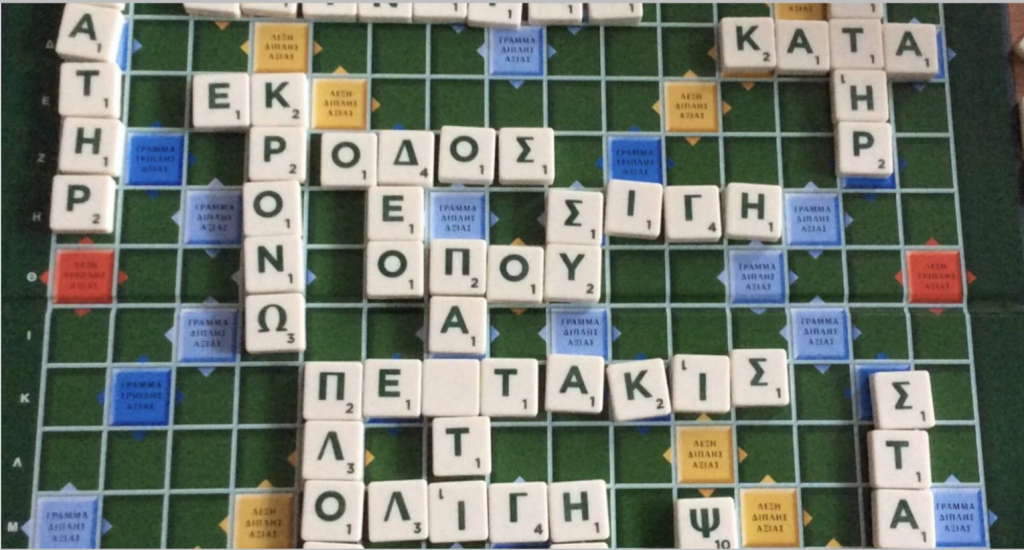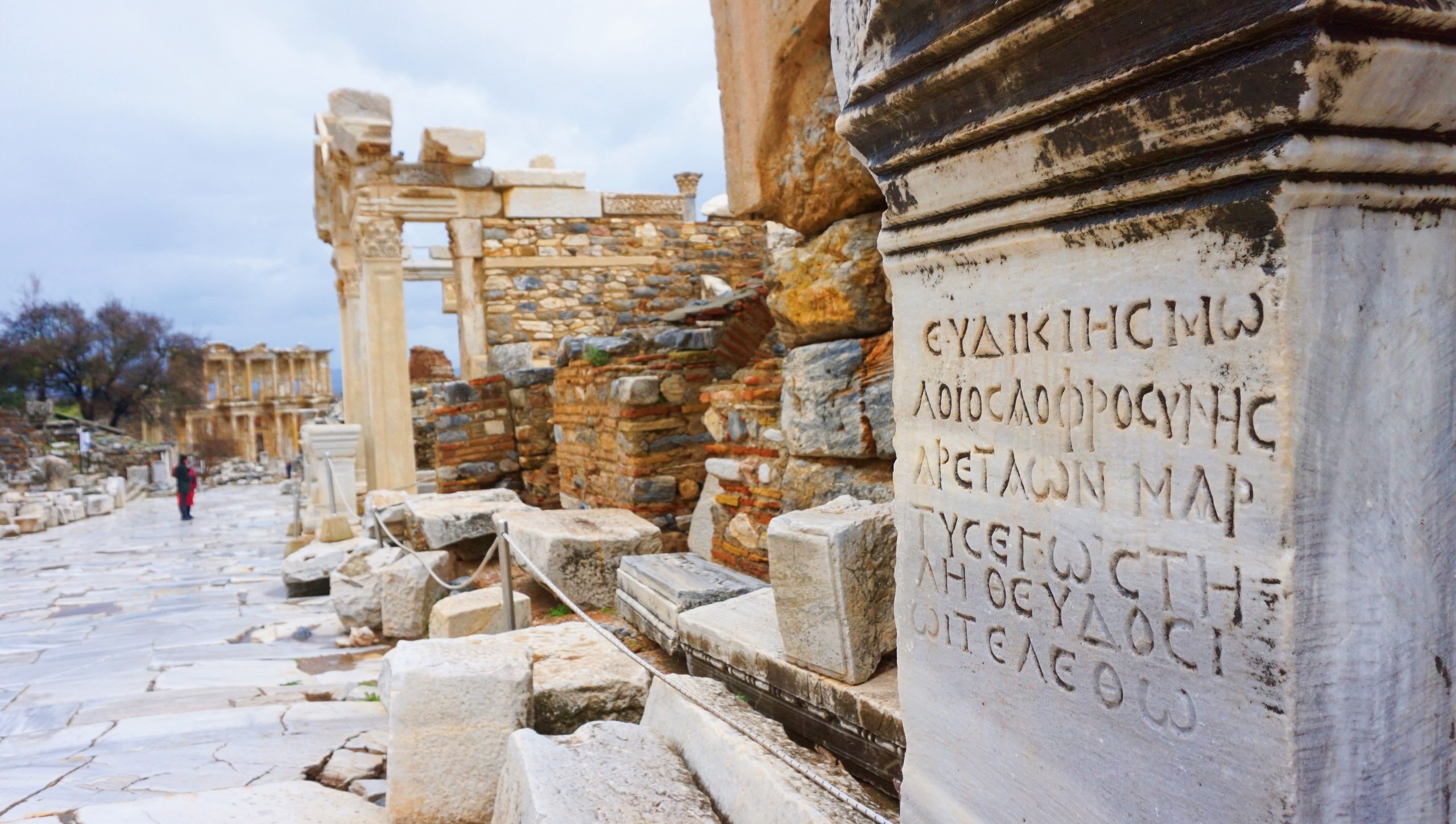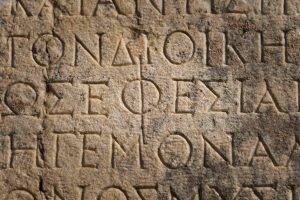How many times have we all said, ‘It’s all Greek to me’ when something sounds completely unintelligible? Well, today, on February 9, we’re flipping the script to celebrate one of the world’s oldest, most influential languages—Greek!
Greek Language Day honors the language’s vital role in shaping world culture, coinciding with the anniversary of the passing of Greece’s national poet, Dionysios Solomos.
Officially established in 2017 by a joint decision of the Greek Ministers of Interior, Foreign Affairs, and Education, the initiative to dedicate a day to celebrating the Greek language actually began in 2014, inspired by Professor Giannis Korinthios, then President of the Federation of Greek Communities and Brotherhoods of Italy.
To celebrate the day, events are held at educational institutions in Greece and university departments of the Greek language around the world.
A Long History Through Time & Facts
The Greek language boasts a written tradition spanning 3,400 years, making it one of the oldest continuously spoken and written languages in the world. With its enduring legacy, Greek compares to other ancient languages such as Chinese (since 1200 BC), Tamil (since 500 BC), Hebrew (over 3,000 years old), and Sanskrit (1500 BC).
Modern Greek, the official language of Greece and Cyprus, is spoken by at least 13.5 million people across Greece, Cyprus, Italy, Albania, Turkey, and the global Greek diaspora. Professor Christophoros Charalampakis, Linguistics Professor at Athens University, notes that the Greek language, including its dialects and regional variations, contains over half a million words—roughly equivalent to the number of words in English, a global language of great prestige. This count also includes widely used scientific terms.
Why is the Greek Language Timeless?
Professor Charalampakis shares with To Vima International Edition five reasons why the Greek language is timeless and unique:
Continuity: Greek has been spoken continuously for over 4,000 years and written for 3,500 years without any gaps. This unique privilege is shared by Greek and only two Chinese dialects. While older languages such as Sumerian and Babylonian have disappeared, Greek has endured. In 1952, British engineer Michael Ventris deciphered Linear B, extending the history of written Greek by seven centuries.
The Homeric Epics: Greek is the language of the immortal Iliad and Odyssey, masterpieces of world literature that have been translated into almost every language. The Iliad chronicles the Trojan War, emphasizing heroism and divine intervention, while the Odyssey explores the human struggle for survival and the longing for home, with Odysseus seeking the nostimon imar (the sweet day of return).
Lingua franca: As lingua franca from 300 BC to 300 AD, Greek served as the international language of the ancient world for six centuries. It was essential for education, and many Roman emperors spoke it fluently. Caesar is said to have spoken Greek to his assassin, uttering the famous line, “Καὶ σύ, τέκνον (Kaì sý, téknon; ‘You too, child?’),” now widely known as “Et tu, Brute?”
Christianity’s Spread: The Greek language was instrumental in spreading Christianity. The Old Testament was translated into Greek, and much of the New Testament was originally written in the simple, everyday language spoken by the Greeks of that era.
Scientific Terminology: From the Renaissance onward, Greek formed the foundation of global scientific terminology. Greek roots have given rise to many modern scientific terms. For instance, the Homeric root tele- (meaning “far”) has produced about 2,500 compound terms widely used internationally, such as teleconference, telemedicine, teleworking, and others.
It’s All Greek to Me—or Maybe Not?

“Gimme a word, any word, and I’ll show you how the root of that word is Greek,” says Gus Portokalos, the lovable Greek dad from the 2000s comedy My Big Fat Greek Wedding, directed by Greek-Canadian Nia Vardalos. His humorous claim resonates, as Greek words are embedded in many languages worldwide.
In light of today’s celebration, To Vima International Edition shares some unique words with Greek roots that are used in English:
- Chaos: Derived from the Greek χάος (khaos), meaning “abyss,” chaos originally referred to the void or emptiness that existed before creation. Over time, it came to signify disorder or confusion, first appearing in English in the 1400s.
- Democracy: From Greek δημοκρατία (dēmokratia), coined from δῆμος (dēmos, “people”) and κράτος (kratos, “rule”), democracy literally means “rule by the people.” It was first used in 5th century BCE Athens to describe their political system.
- Enthusiasm: Derived from the Greek ἐνθουσιασμός (enthousiasmos), meaning “divine inspiration,” from ἐν (en, “in”) + θεός (theos, “god”). It refers to the state of being inspired or possessed by a divine force.
- Cardio: Coming from the Greek καρδία (kardia), meaning “heart,” cardio appears in terms like cardiogram, cardiology, and cardiovascular.
- Panic: From the name of the Greek god Παν (Pan), whose shouts instilled irrational fear, or “panic,” particularly during battles with giants.
- Euphoria: From Greek ευφορία (euphoria), meaning “power of enduring easily,” from ευ- (eu, “well”) + φέρειν (pherein, “to carry”). It describes a state of intense happiness or well-being.
The Longest Greek Word
Finally, we couldn’t leave out the longest word in the Greek language, which has a whopping 171 letters and 78 syllables:
Lopadotemachoselachogaleokranioleipsanodrimhypotrimmatosilphiokarabomelitokatakechymenokichlepeikossypho-phattoperisteralektroionoptekefalliokigklopeleiolagoiosiraiobaphetraganopterygon.
This word, originating from Aristophanes’ 391 BCE comedy Assemblywomen, describes a fricassee made from at least 16 different sweet and sour ingredients. It holds the Guinness World Record (1990) for the longest word in literature, with a Latin transliteration containing 183 characters.









